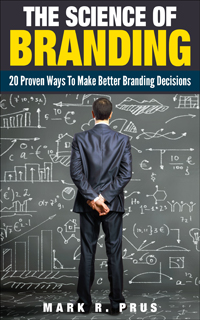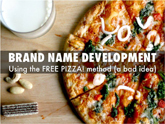Our President. The Great Renamer.
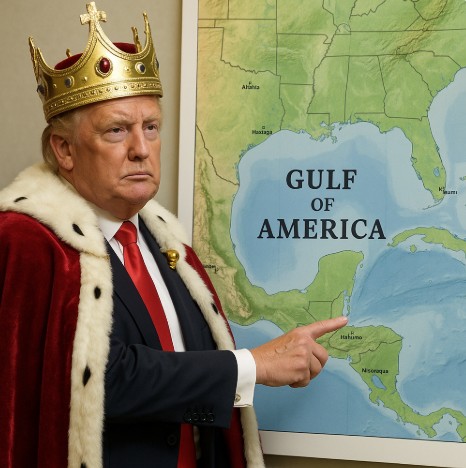
I spent over 25 years in Brand Management. One of the realities of hiring a new brand manager is the first thing he/she will do is change the packaging of the product. It doesn’t matter if the product is successful or not. In some ways, this is similar to a dog or cat marking its territory by pissing on something. The brand manager wants the world to know “This is mine. I did this.”
Our President has a special attraction to renaming things. It started early on when he gave nicknames to people he was campaigning against (e.g., “Crooked Hillary” and “Sleepy Joe Biden”). Here is a compilation of those nicknames (https://en.wikipedia.org/wiki/List_of_nicknames_used_by_Donald_Trump ).
But when he became President again, he took his game to the next level.
The biggest name change was renaming the Gulf of Mexico to the Gulf of America. But he has not stopped there. Recently he decided he would rename Veterans Day “Victory Day for World War I.” He would also label May 8, known as V-E Day for Victory in Europe, as “Victory Day for World War II,” and vowed to celebrate America’s military wins.
President Trump has seized upon renaming to push forward his view of the world. In some ways, he’s the ultimate marketer. But marketing is not just one-off things like renaming.
As a professional name developer, I too rename a lot of things. But when I do it, I build a name based on solid principles that are based on the strategic foundation of the brand.
I’m not sure “The Great Renamer” can demonstrate the solid strategic principles behind his actions, but I will acknowledge that they make for great headlines!
One Of These Things Is Not Like the Other
(A Lesson In Trademark Law)
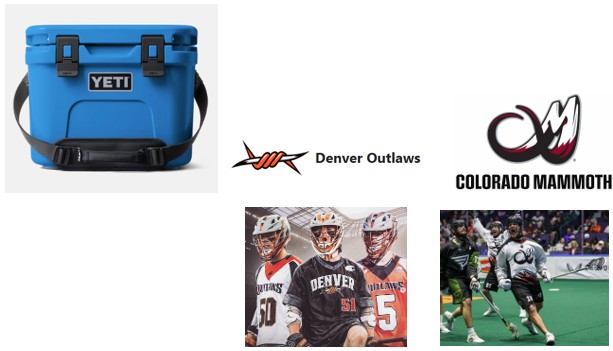
The Utah Hockey Club has a naming problem.
Rushed into the National Hockey League as an Arizona Coyotes replacement this season, the club decided to use “The Utah Hockey Club” moniker until trademark issues could be resolved on their alternative name choices.
Their original alternative name choices were Yeti (the ownership and fan favorite), Mammoth, Blizzard, Outlaws, Venom and Utah Hockey Club. However, the US Patent and Trademark Office rejected all their submissions. Mammoth and Outlaws were rejected more for clerical issues that are resolvable, despite the fact that both Mammoth and Outlaws are professional lacrosse team names. Yeti was rejected for the likelihood of confusion with YETI® Coolers. In particular, it seems that YETI Coolers, LLC has filed for broad trademark use across many categories, including clothing and apparel which may conflict with potential Utah Yeti hockey apparel.
BTW I’m not a trademark attorney, but my point of view on the Yeti conflict is validated by a real trademark attorney (https://harris-sliwoski.com/blog/utah-yetis-u-s-trademark-lessons-for-all/ for example).
The Utah Hockey Club pivoted to these three alternatives: Utah Hockey Club, Utah Mammoth, and Utah Wasatch (Wasatch is a nearby mountain range). Fans were supposed to vote at the upcoming 4 home games, and the winner would be decided based on the fan vote.
After the first game’s voting, the club removed Utah Wasatch and replaced it with Utah Outlaws (a good decision as nobody outside of a few people in Utah knows what a Wasatch is). The “final three names” are: Utah Hockey Club, Utah Mammoth, and Utah Outlaws. But I bet they would still love to find a way to use Yeti.
So, let’s play the “One of these things is not like the other” game. In considering Yeti, Mammoth and Outlaws, which name would be most confusing to the public.
UTAH YETI HOCKEY vs YETI COOLERS
UTAH MAMMOTH HOCKEY vs. COLORADO MAMMOTH LACROSSE
UTAH OUTLAWS HOCKEY vs. DENVER OUTLAWS LACROSSE
I would argue that Yeti is the least confusing and I’m certain that consumer confusion testing would provide this result. It seems unlikely that YETI Coolers, LLC would field a hockey team, whereas a hockey team called Utah Mammoth could easily be confused with the Colorado Mammoth lacrosse team.
Is this a case of superior intellectual property management by YETI Coolers, or poor intellectual property management by the Denver Outlaws and Colorado Mammoth lacrosse teams?
BTW, shame on the marketing team at YETI Coolers. They failed to convince their management that a joint trademark agreement would generate 20x the benefits for the YETI Coolers brand. Imagine the marketing possibilities!
Is Odd Spelling of Names a Help or a Hinderance for Trademarks?

Thumbzup Logo Per Website
I’m not a big fan of odd spelling of names. Yes, I know using intentionally misspelled names is viewed as a clever thing to do in the startup community (see my previous blog post on this trend).
But what happens when you try to trademark a name that is intentionally misspelled?
Turns out the rules don’t change. The USPTO will apply its standards regardless of spelling. You still have to investigate similarities in terms of appearance, meaning, and sound. Here is an excerpt from the USPTO website that explains the similarity issue.
When you search our trademark database, ask yourself these questions about each trademark you view:
- Is the trademark confusingly similar to yours? Trademarks may be confusingly similar if they look alike, sound alike, have similar meanings, or create similar commercial impressions.
- Are the goods or services related to yours? In other words, could a consumer mistakenly believe the goods or services come from the same source? Goods or services may be related if they’re used or sold together, used by the same purchasers, advertised together, or sold by the same manufacturer or dealer. They don’t have to be in the same international class to be related.
If you can answer “yes” to both questions for any trademark in our database, check to see if the trademark is live. If so, there may be a likelihood of confusion, which means you might not be able to register your trademark.
So no, you could not start a technology company called SISCO because it would be viewed as too similar to CISCO®. A manufacturer of appliances could not choose ELGEE as a name because it is too similar to LG®.
When I read that Thumbzup® had been invited to ring the Opening Bell for the NASDAQ exchange, I thought “Great. Another tech company using the intentionally misspelled approach.” My next thought was “good luck getting a trademark on that!” because I thought the name “Thumbs Up” would have been in use already.
Turns out I was wrong. Thumbzup does have a trademark.
But the awarding of a trademark to Thumbzup is probably more likely due to the fact that there were no registered trademarks with a high degree of similarity rather than its misspelling. I’m not saying the misspelling was not a factor, because it probably did help differentiate the name versus the generic saying of “thumbs up.” But I’m sure the same rules about similarity applied in granting the trademark to Thumbzup.
Side note: Thumbzup looks like an interesting company with some unique technologies in the field of social media! Check it out: https://www.thumzupmedia.com/
How Did Santa Claus Indiana Get Its Name?
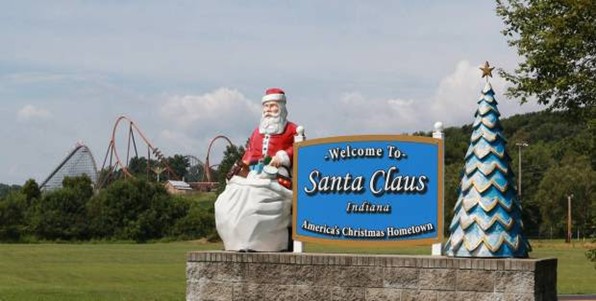
Spencer County Visitors Bureau
Full disclosure. I’ve been to Santa Claus Indiana, a small town of about 2600 people. It is a big deal if you are a fan of Christmas. And even though I am a professional name developer, I did not know the origin of its name.
Seems obvious, right?
Actually, nobody really knows.
Here is the background. When the town was established in the 1850’s it was first known as Santa Fee. However, the town could not get a post office because it was believed that Santa Fee was too close to an existing town in Indiana, Santa Fe.
There are two theories about how the Santa Claus name was chosen. One theory is that the person who completed the name change application for the post office just wrote Santa Clause as a joke on the naming document. The other theory is that during a Christmas Eve discussion with the public about the name change, the wind blew open the door and a young child shouted “Santa Claus!”.
If I had to choose between a prankster bureaucrat and a small child experiencing the magic of Christmas, I’d side with the small child 10 out of 10 times.
Merry Christmas everybody!
P.S. If you write a letter to Santa and send it to the post office at Santa Claus, Indiana, local residents will write back (the town gets over 20,000 letters to Santa each year)!
HT Morning Brew
Science Says Odd Spelling Can Be Bad Branding

Startups have a bad habit of using intentionally misspelled names. This is not a new trend, but the fact that it continues shows their ignorance of the science of branding. Crunchbase looked at names of recently founded startups and showed that founders are still using offbeat spelling in their company names (https://news.crunchbase.com/startups/offbeat-misspelled-names-ai-skild-lyft/).
A 2023 study at The Ohio State University (https://news.osu.edu/unconventional-spellings-are-a-badd-choyce-for-brand-names/) showed that deliberate misspelling of a brand name was almost always a bad idea. One example used the name Clear and Klear for a seltzer, and Clear was overwhelmingly preferred. Researchers concluded that “Results showed that participants thought the unconventional spelling was a gimmick or marketing tactic designed to make the brand seem cool or trendy. They also thought it made the brand seem less sincere – less honest, down-to-earth and wholesome.”
There were exceptions though. The researchers found that deliberately misspelling words can work in some limited cases, such as when the reason for selecting the name is seen as sincere, or when consumers are seeking a memorable experience. In one study, the researchers found that a bar called “Xtra Chilld Lounge” did appeal to consumers looking for a fun, memorable evening.
In my experience, when you use intentionally misspelled names, you create a “mind puzzle” with your branding. Consumer reaction to the mind puzzle ranges from “rejection to acceptance to confusion.” If your misspelling is seen as trivial (such as Klear versus Clear), then the consumers seem to reject it. If your misspelling is clever (but not confusing), the customer will often spend time trying to figure out why the name was chosen, which can lead to higher recall of the name later and positive attributions to the product. The consumer might enjoy the mind puzzle if they don’t have to work too hard to get your point. When consumers solve the puzzle, they will then have a sense of accomplishment because they were able to figure it out. However, when you go too far, consumers may just get frustrated and confused and move on. Finding the sweet spot of intentional misspelling is not easy!
The lesson here is that intentional misspelling is not necessarily a good or a bad thing, but what is important is how the target customer relates to the name and the product itself. Misspelling for the sake of misspelling (or domain acquisition) can be bad, but if the name makes the target customer curious about a product and willing to investigate it further, then misspelling can be good.
Selective Use of Research
Many years ago, the prevailing position was that light to moderate drinking, especially wine, provided a wide range of health benefits. Recent research has shown that any amount of drinking is bad for you. Which research do you believe?
As reported in Wine Spectator, a new study sought to resolve that conundrum. The study was published in JAMA (August 12) and was conducted by researchers based at Harvard and other institutions. It examined data from over 135,000 current drinkers over the age of 60 in the U.K. The findings indicated that healthy adults from wealthier areas suffered no additional health risks from moderate drinking and those who drink wine with food even enjoyed better health. However, for those adults with existing health problems from poorer areas, the researchers found that any alcohol posed serious health risks.
I’m sure the fact that healthy adults who live in wealthier areas have better health outcomes than unhealthy adults who live in poorer areas is not much of a surprise. Wealthy individuals have the money and resources to eat a better diet and generally have better access to healthcare.
And call me skeptical, but the highlighting of “even better health outcomes for those who drink wine with food” is not surprising in an article from Wine Spectator.
Wine Spectator walks a fine line and does not say that drinking is good for you. But they strongly imply that it isn’t bad for you either. I think there is some selective use of data in their reporting!
C4 Versus 4C – Branding Too Close For Comfort?
My local BJ’s brochure advertised sales on these drink products:
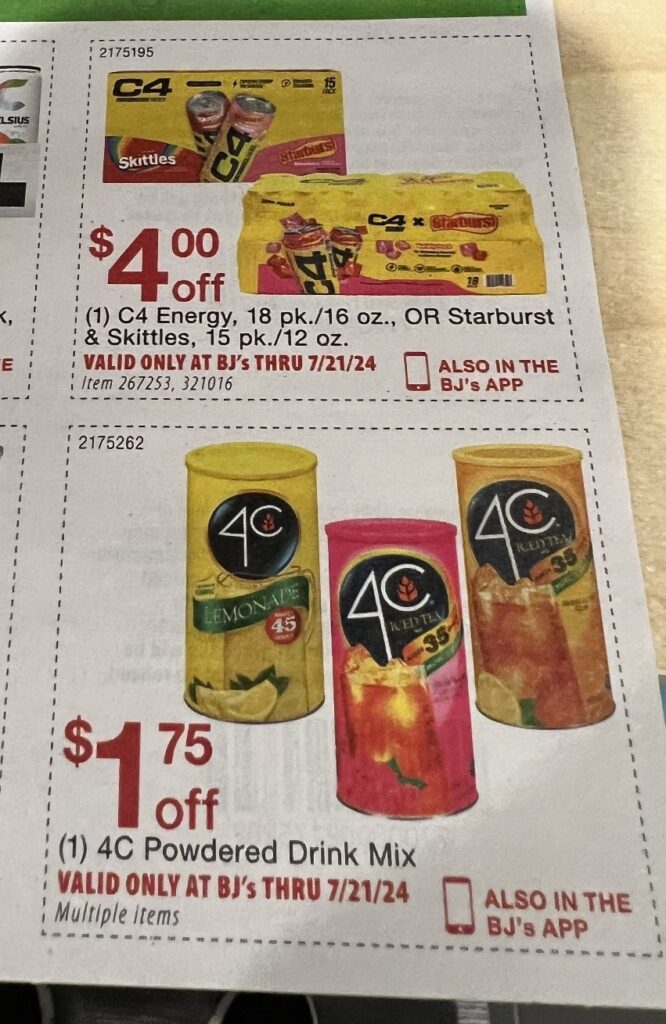
I did a double take – were these the same brand or owned by the same company? Very similar names and colors.
Turns out they are different products owned by different companies. I investigated the trademark status of these names and found that they both are registered trademarks:
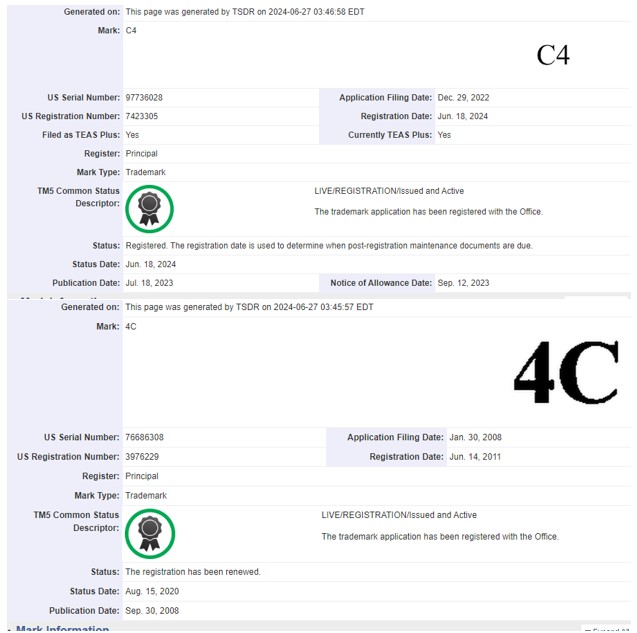
Both offer very similar products in the drink category (C4 has a powdered drink mix). They are registered in different International Classes, but the similarity of the marks is what is important and from a trademark standpoint C4 and 4C would be considered to be very similar.
I’m not questioning the trademark office, but I am questioning the management of C4. When they filed, they had to be aware of 4C (check the registration dates above). Why would you launch a product with a nearly identical name/branding to a competitor?
Dad Jokes

Photo Credit: https://babylonbee.com/news/dad-lands-dream-job-at-brewery-coming-up-with-puns-for-naming-beers
We all have heard “Dad Jokes.” Heck, I’ve been known to throw out a few when my daughters were younger, and I thoroughly enjoyed their eye rolls when I delivered the punchline.
The Merriam-Webster Dictionary defines a Dad Joke as “a wholesome joke of the type said to be told by fathers with a punchline that is often an obvious or predictable pun or play on words and usually judged to be endearingly corny or unfunny.”
If you are good at Dad Jokes, then you might be highly qualified to name craft beers. In fact, that is how Mark Carson got his job as “Chief Naming Officer” at High West Beer, a craft brewery in Austin Texas. Mark draws on his years of dad-joke-making to christen each beverage with a creative, catchy, punny moniker.
Here are some of the names Mark has developed:
- Pursuit Of Hoppiness
- Wheat the People
- Lager? I Barely Knew Her
- Malter White
- Hefeweizenburg
- Brews Almighty
- Ale’s Well That Ends Well
- On The Road A-Guinness (not to be confused with his other stroke of genius Smart Alek Guinness)
- Hopportunity Knocks
- What You Talkin Stout Willis
- Beauty And The Yeast
- Brewed Awakening
- Hop To Conclusions
- Jagged Little Pilsner
Mark named over two hundred new beers in his first week on the job including ‘It Takes Brew To Tango’ and ‘Hop-shank Redemption.’ Like a good Dad Joke teller, he never runs out of names!
A “reverse euphemism?”

You’ve heard of a euphemism (a mild or indirect word or expression substituted for one considered to be too harsh or blunt when referring to something unpleasant). Think downsized instead of fired. A correctional facility instead of a jail. Light bladder leakage instead of incontinence.
Well, here is a case where an organization is giving something a name that is MORE offensive in order to accomplish a worthy goal.
The Streamlined Sales Tax Governing Board unanimously adopted a new term, “menstrual discharge collection devices” (MDCDs), to replace “feminine hygiene products,” aiming to clarify the essential nature of these items and end the discriminatory “tampon tax.”
The term change aims to eliminate debates in male-dominated legislatures regarding the necessity of taxing menstrual products and prevents arguments about comparable products for men.
Despite some initial resistance, the term “MDCDs” has gained acceptance, with Kentucky and Indiana already introducing bills using the new terminology, following the example of Texas and other states that have ended the tampon tax since 2016.
Applause for this creative use of naming!
The “Same But Different” Naming Strategy Strikes Again
Jeep Exploits This Strategy To Make Its Plug-In Hybrid More Accessible

Last month I wrote a full debrief of the “Same But Different” naming strategy that McDonaldsTM is using with its CosMc’s beverage-focused chain. https://nameflash.com/2024/01/the-brilliance-of-same-but-different-as-a-naming-strategy/ I provided the science behind use of this strategy (and it is plentiful), but the TL; DR summary is familiarity breeds comfort when it comes to names of new ventures.
Recently JeepTM used the “Same But Different” strategy to launch its plug-in hybrid line “4 X e.” Even the clever logo design reinforces the plug-in aspect.
What Jeep is leveraging is decades of “4 X 4” communication. The public is so very comfortable with “4 X 4” as a moniker that putting a slight twist to it causes some people to notice the change. The replacement of the second “4” with “e” is a way to leverage that level of comfort into plug-in hybrids.
Even though I identified the “Same But Different” naming strategy in action, I am not a fan of its application here. “4 X 4” communicates a very specific quality of the vehicle. “4 X 4” indicates a system in which a vehicle’s engine powers all 4 wheels evenly with the end benefit of being able to get traction in messy situations like snow or off-road. “4 X e” twists that into something different.
Are these new Jeeps no longer 4 X 4? Have they reduced the effectiveness of the “4 X 4” capability of the plug-in hybrid Jeep? In other words, are “4 X e” vehicles less capable than regular Jeeps? If that creeps into the minds of consumers, this innovation is doomed!

